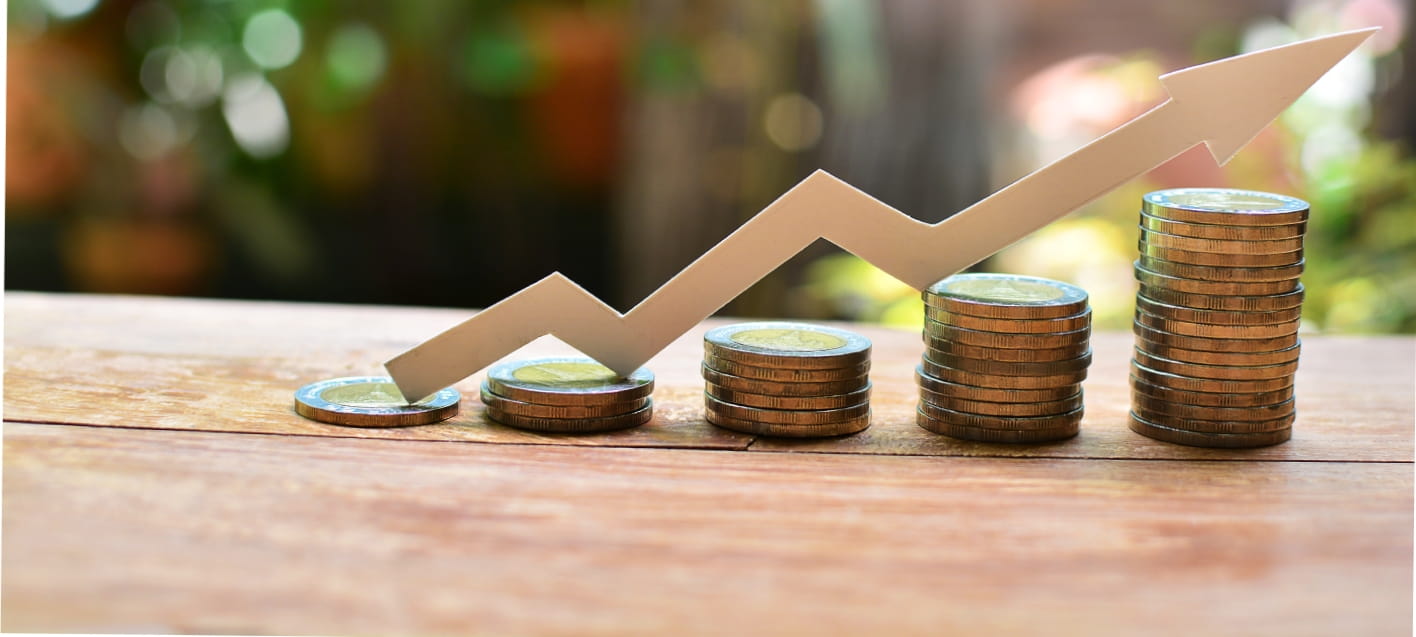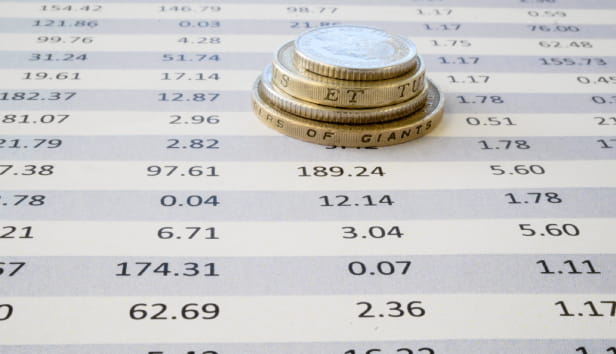
This article is for general guidance only and is not financial or professional advice. Any links are for your own information, and do not constitute any form of recommendation by Saga. You should not solely rely on this information to make any decisions, and consider seeking independent professional advice. All figures and information in this article are correct at the time of publishing, but laws, entitlements, tax treatments and allowances may change in the future.
While we’re in work, our investment focus is often on building up a pension to support us once we’ve retired and are no longer earning.
But even once you’ve stopped working, you might be considering investing (if you’ve got the income to spare and no urgent need to use the money right now), as money invested in the stock market (equities) has previously grown faster than it would in a conventional savings account.
According to the Barclays Equity Gilt Study 2023, historically over any two-year period there’s a 70% chance that equities would grow faster than cash, rising to over 90% if that money was left untouched for 10 years.
So, investing could be a way of improving your financial security as your retirement progresses, and put you in a better position to deal with rising costs.
However, investing isn’t for everyone and it’s important to understand the risks. Returns are not guaranteed, and you could potentially lose money.
When considering what to do with your money, Scott Gallacher, Chartered Financial Planner at financial adviser Rowley Turton, highlights how you first need to be confident that you’re on top of your day-to-day finances.
“Before diving into investments, it's important to ensure you have an emergency fund and to address any outstanding debts, prioritising higher-interest debt first,” he says.
“Once these essentials are sorted, you can consider increasing your savings or investing your surplus income.”
As a guide, if you’re thinking of starting investing, you should be happy for any money to be tied up for at least five years (if not longer).
This is because the value of your investments will inevitably fluctuate over time and the longer you are able to wait before withdrawing, the greater your chance of recouping any short-term losses and earning better returns than cash.
So, if you think you might need the money quickly – for long-term care or to help your family – consider whether investing is the right move for you, or if a savings account, with a more stable level of interest, might be better.
Ben Yearsley, Investment Consultant at Fairview Investing, adds that it’s also important to think about risk and how you would react if stock markets fell: “I ask my clients a simple question: would you panic and sell out if your investment fell 10%?
“If the answer is yes, you should probably stick to cash. That isn’t a hard and fast rule, but it’s a good starting point.”
As a golden rule, never invest more than you’re comfortable with, nor in something you feel unsure of. If something feels off, that might be a sign you’re taking more risk than is right for you.
One of the biggest challenges with investing is choosing from the vast range of available options. To start narrowing down your choices, it’s a good idea to think about the types of things you can invest in (assets). These include:
For less experienced investors, experts generally recommend looking at a fund that buys investments on your behalf. This could be a fund that invests purely in shares or one that combines a range of assets, such as shares and bonds.
This not only saves you the headache of researching each individual company you might invest in, but also diversifies your investments and reduces your overall risk.
For example, if you own shares in just one or two companies, you could experience significant losses if one of those companies gets into difficulties and its share price falls.
This could be for many reasons, not just the way it’s run – political or global events can affect industries in different ways, and you’ll be at the mercy of these external factors. But by owning shares in numerous businesses, this risk is reduced.
Each investment fund carries a risk rating – as all funds carry some form of risk – that can help you make your choice. A fund which holds shares in well-established companies in a developed market such as the UK or US is likely to carry less risk than a fund that invests in smaller companies in emerging markets, for example.
One possible approach is known as a 60-40 portfolio, which refers to a mix of 60% shares and 40% bonds. This method provides a mix of higher- and lower-risk assets that can generate both long-term growth and regular income.
The amount of risk you’re happy to take on can depend on factors such as how much other income you have and how long you plan to invest for. “Understanding your risk profile and the risks associated with investments is paramount,” says Gallacher.
While high-risk investments can be tempting by offering greater returns, it’s important to remember there’s a very real chance you could lose some – or all – of your money. Remember, never invest in something you don’t understand or feel comfortable with, and don’t be afraid to seek advice if you’re not sure.
Investment returns are also subject to tax, but you can shelter your pot from HMRC by paying into a Stocks and Shares ISA, rather than a general investment account (GIA).
In a GIA, you’re exposed to tax liabilities, and you could need to pay Capital Gains Tax when selling shares if you’ve made a profit, and may also have to pay tax if you receive dividends from your shares.
With an ISA, each year you can invest up to £20,000 tax free across all ISAs you hold and be sheltered from these taxes.
.jpg?sc=max&mw=800&h=450&la=en&h=731&w=1300&hash=0CEC65DAC3C81A9DEFEBF59C6D0E18CB)
There are several online platforms that make it simple to choose your investments, make regular contributions and check how your funds are performing.
“When you’re deciding which platform to use, it mainly comes down to charges and functionality,” says Yearsley. “Ease of use is as important, if not more important, than charges, I think. You have to be comfortable managing your own money.”
It will cost you to invest on most platforms, as they'll either take a percentage of the money that you invest with them or charge a fixed fee to let you use their service for the trades you wish to carry out.
Before you invest with any platform, always check on the FCA Register that the company you’re using is legitimate – if it shows as ‘authorised’, you may get compensation from the Financial Services Compensation Scheme (FSCS) up to £85,000 if the firm fails.
However, you won't be covered if you make a loss purely from poor investment performance.
Online investment platforms make it cheaper and easier than ever to build and run your own investment portfolio. However, if you have concerns, or have a larger amount of money (perhaps with expected inheritance or a windfall of some kind) you want to invest – it could be worth an initial consultation with an independent financial adviser.
“While some individuals may prefer managing their finances independently, many appreciate the simplicity and expertise an independent financial adviser offers,” explains Gallacher.
“An adviser can help you assess your goals, risk tolerance and the suitability of investments while also optimising tax efficiency.”
Advice will also be important if you’re also worried about tax or need to think about estate planning, says Yearsley.
“However, if it’s a small amount of monthly investing and you’re feeling fairly confident then you can probably do it yourself.”

.jpg?la=en&h=354&w=616&hash=EF7D69971E6E84DBFACB50DA190CC405)





Our guide explains how ISAs provide tax-free growth for your savings and investments.

Boost your bank balance by claiming back everything you’re entitled to